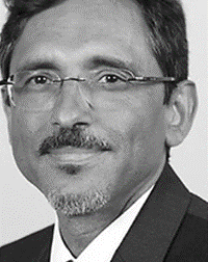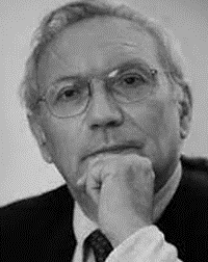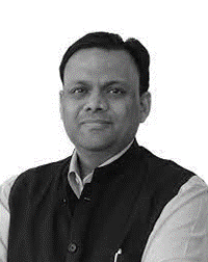
Virtually all of today’s advanced economies have completed their journey from widespread rural poverty to post-industrial wealth employing policies designed to shift the production structure towards higher productivity activities and sectors with progressively, better paid jobs and a greater upgrading potential. Such policies are conventionally called industrial policies.
From the late 1970s onwards, the debates between proponents and opponents of industrial policy became sharply ideological. In mainstream economic analysis, in the pronouncements of international development agencies, and in explicit policy statements by some (especially Anglo-Saxon) governments, industrial policy, along with its main architect, the state and its role in structural transformation fell in to disrepute, although it often continued in practice through more ad hoc responses to specific economic challenges. Growth theorists worked from standard production functions that assumed no special properties for any particular sector, or any particular role for any actor, such as the state, while others pointed to the potential for industrial policy to create ‘rent-seeking’ opportunities. In mainstream economies state has been deemed as a platform to seek economic rents.
However, failures of most developing countries to industrialize under neoliberal policies and market governed economies has contrasted with the successes of many East Asian countries who pursued well planned policies to industrialize with strong developmental states. Hence, whether in the context of meeting the SDGs, tackling the climate emergency, rewiring supply chains in response to the Covid-19 crisis or leveraging new digital technologies, industrial policy has returned to centre stage of debates over the direction of development strategy at the national level. International organizations have become more open to discussing industrial policy in developing countries, in part thanks to China’s remarkable transformation over the last forty years, but also, as UNIDO has insisted, in the context of a climate emergency that requires a rapid shift from high- to low-carbon growth paths in both developed and developing countries.
UNCTAD’s World Investment Report 2018 identified eighty-four countries (accounting for 90 per cent of global GDP) that had adopted formal industrial policies in the five years to 2018. A joint UNCTAD-ILO volume concluded “discussion among economists and policy makers is now increasingly shifting away from whether or not to have industrial policy and towards a focus on the objectives and scope of industrial policies and “how to do it” in a way appropriate to each country`s conditions”. This is a new consensus across a broad spectrum of economists and policy makers on the on the relevance, desirability, and practicability of industrial policy.
It is therefore of primary importance supporting developing countries in the formulation and implementation of industrial policy. This is why, in the framework of the OECD Initiative for Policy Dialogue on Global Value Chains (GVCs) Production Transformation and Development, UNCTAD has participated to the development of a policy assessment and guidance tool, the Production Transformation Policy Reviews (PTPRs), which aims at providing a guiding framework to identify options and actionable policy responses to promote structural transformation and upgrading, based on comparative assessment of countries’ assets, upgrading potential and priorities. To the date four PTPRS have been carried out by the OECD, UNCTAD and UNIDO in Latin American and African countries, with the participation of the respective UN-Regional Commissions.
Objectives:
The purpose of this webinar is to discuss how developing countries are concretely taking advantage of the new consensus around industrial policy in their policymaking and examine how the PTPRs has aided beneficiary countries in the effort to update the policy toolset at their disposal. The event will represent the closure of a series of webinars that, tapping into the expertise of the recently launched Oxford Handbook on Industrial Policy, explore some of the challenges and areas of debate around industrial policy making.
The key objectives and expected outcomes of the event are the following:
- To emphasize what is new in the “new consensus” around industrial policy and to asses and compare the challenges in the design and application of industrial policy in different economic and political circumstances.
- To discuss the experiences of the different countries that went through the policy review exercise to increase knowledge sharing and peer-learning, and create an open dialogue in which member states can learn from different experiences of industrialization including challenges.
- To examine the role that interagency cooperation can play to support development policy making, and South- South cooperation, in such a difficult historical juncture
Format:
The event will draw heavily on the contributors to The Oxford Handbook on Industrial Policy as well as on government officials of PTPRs beneficiary countries, and will aim to target policy makers in developing countries, as well as academics and other stakeholders such as civil society organizations, activists and young scholars.
Watch event recording
Patrizio Bianchi is the Italian Minister of Education. He is an economist and academic.
He studied at the University of Bologna and the London School of Economics. He held academic positions at the University of Trento and the University of Bologna before becoming Rector of the University of Ferrara in 2004, where he currently holds the UNESCO Chair in "Education, Growth and Equality". He has been councilor for Education in Emilia Romagna for two terms and he is the scientific director of Ifab - International Foundation Big Data and Artificial Intelligence for Human Development.
Mr. Bianchi has contributed significantly to the industrial policy literature and published extensively on peer reviewed journals and volumes.
Ms. Celeste Drake was appointed as the Deputy Director-General of the International Labour Organization (ILO) in August 2023. She is a seasoned policy advisor with extensive experience in labour, trade and economic policy.
Ms. Drake began her professional career as a high school economics and world history teacher before transitioning into key advisory roles within the U.S. government.
Most recently, she served as the Deputy Director of the National Economic Council and top labour advisor to President Joseph R. Biden, where she played a pivotal role in shaping labour and industrial strategies. Prior to this, Ms. Drake was appointed as President Biden’s first-ever Made in America Director, where she established and led an office within the Office of Management and Budget, working with employers and trade unions to implement infrastructure, industrial, and procurement policies.
Her previous roles include leading government affairs at the Directors' Guild of America and serving as the Trade and Globalization Policy Specialist at the AFL-CIO. At the AFL-CIO, Ms. Drake was instrumental in advocating for trade policy reforms to support inclusive growth and shared prosperity. She worked closely with governments, trade unions, and employers on major international trade initiatives, including the Trans-Pacific Partnership (TPP) and the Trans-Atlantic Trade and Investment Partnership (TTIP).
She holds a Bachelor’s degree in Political Science, a Master’s degree in Public Policy, and a law degree from the University of California, Los Angeles (UCLA).
Arvind Gupta is the Head and Co-Founder of Digital India Foundation, a policy think tank working in areas of Digital Inclusion, Smart Cities, Internet Governance, Data Privacy & Cyber Security, Electronics and Manufacturing. He is also an Adjunct Professor at IIT-BHU, teaching “Data and Digital Economy and a Member of Founder’s Circle of iSPiRT. He cooperated extensively with the Indian government leading, among other thing, the official Indian Digital, Social Media and Communication Campaign.
Mr. Gupta graduated with a degree in Electronics and Communication Engineering from IIT-BHU, Varanasi. He has a Masters in Computer Science and MBA from University of Illinois. In 2014, he has been awarded the Eisenhower Global Fellowship for Innovation and the DataQuest Pathbreaker of the year award.

Richard Kozul-Wright is the director of UNCTAD’s globalization and development strategies division.
He has worked at the UN in both New York and Geneva and published widely on economic issues, including in the Economic Journal, the Cambridge Journal of Economics, the Journal of Development Studies, and the Oxford Review of Economic Policy.
He has co-written books such as The Resistible Rise of Market Fundamentalism with Paul Rayment and co-edited volumes of Transnational Corporations and the Global Economy, Economic Insecurity and Development, Securing Peace, Climate Protection and Development and Industrial Policy.
He also co-edited Transforming Economies: Making Industrial Policy Work for Growth, Jobs and Development with the International Labour Organization.
He holds a PhD degree in economics from the University of Cambridge in the UK.

Annalisa Primi is the Head of the Division on Economic Transformation and Development of the OECD Development Centre. She is the Head of the OECD Policy Dialogue Initiative on GVCs) Production Transformation and Development.
She joined the OECD in 2009, and previously to the Development Centre, she worked as economist for the Directorate of Science, Technology and Industry and for the Directorate for Public Governance and Territorial Development. From 2003 to 2009 she was Associated Expert Economic Officer at the United Nations Economic Commission for Latin America and the Caribbean (CEPAL), in Santiago, Chile.

Ephraim Patel is currently serving as the Minister of Trade and Industry of the Republic of South Africa. He is the former Minister of Economic Development.
Mr. Patel studied at the University of the Western Cape and University of Cape Town. He has been heavily involved in labour-government issues as he was the Chief Negotiator on the Labour Relations Act of 1995 and acting President of the South African Labour Research Institute (as of 2014). He was Chief Negotiator for the National Bargaining Council for the Clothing Industry (2002) and the National Textile Bargaining Council (2003). He has served as Minister of Economic Development since 2009.





